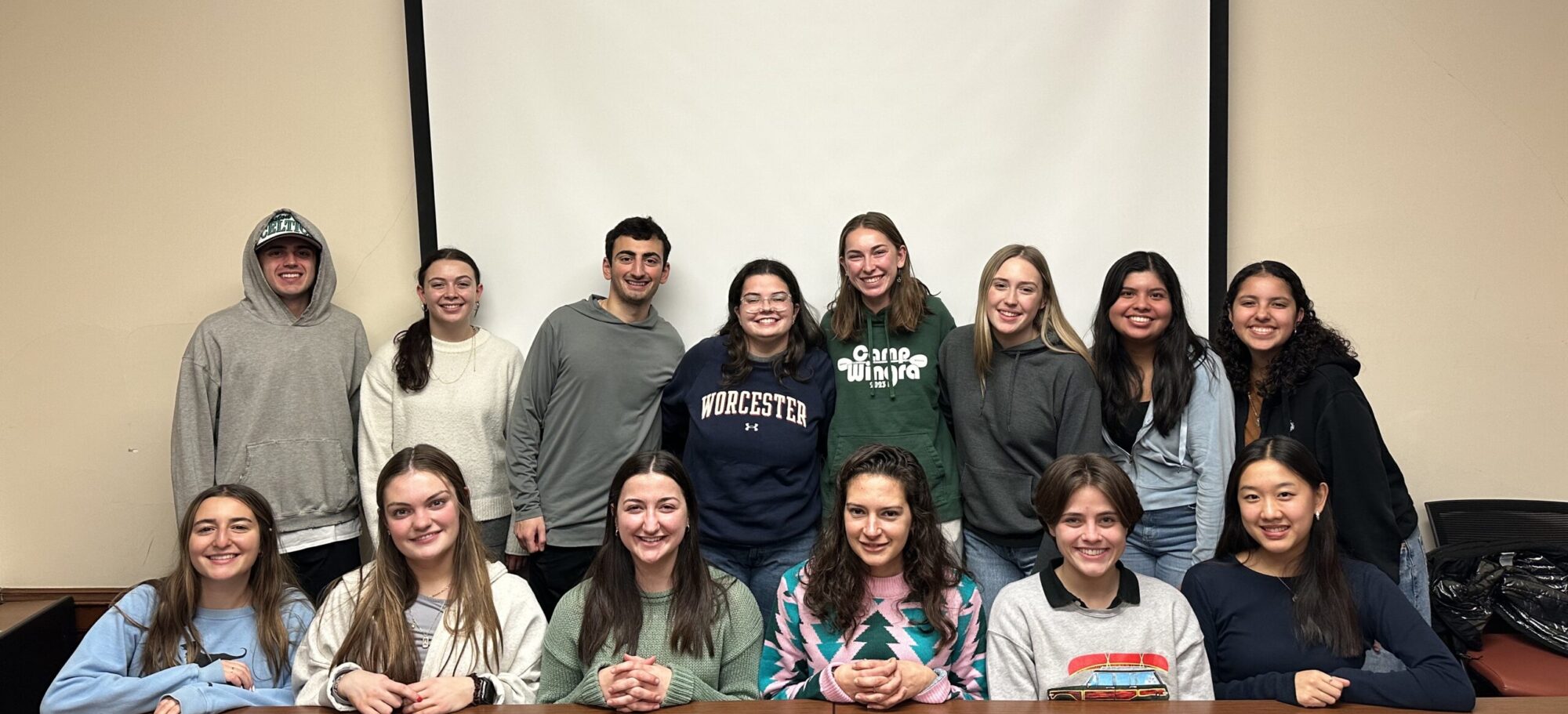On Wednesday, April 13th, CBL Intern, Funmi Anifowoshe’ acknowledged and thanked our community partners for all that they do to serve as co-educators of Holy Cross students. Thank you, Community Partners! Read Funmi’s speech below.
Community engagement and Community-Based Learning has been, and continues to be, very important during my time at Holy Cross. I have been faced with some tough questions in the classroom – for example, how social and economic inequality plays a role in education, how individuals acquire and make use of a new language, and how food and hunger affect the daily lives of individuals and families. Questions that, theoretically I could answer, I could write a paper about, and that I could even personally conceptualize in my life.
However, through my community-based learning experiences, I was forced to do more than just that. I was tasked with taking all the theoretical applications we learn in the classroom, and applying it to or observing it in the Worcester Community. Through these courses and my community engagement, I have developed a greater sense of self. I have learned humility, empathy, and passion. But more importantly, I have learned to individualize people. It is very easy to allow abstract problems to transform themselves into stereotypes and prejudices. My experiences have allowed me to see beyond these stereotypes, and put names and faces to the wonderful people that live and work in Worcester.
These lessons are ones that I bring back to the Holy Cross campus and regularly share with my classmates and others. My passion for community based learning and community engagement never wanes. And it never ceases to amaze me how hard the community partners work to make Holy Cross students feel involved and valued at their sites. We do not face easy challenges nor ones that can be quickly fixed, otherwise the Community Sites and the Community Partners would have no need to exist. They make us work hard, they make us tackle our fears and implicit biases, and they make us see the true value of the greater Worcester community. Every individual that I have met through my engagement in Worcester, whether it was the community partners, the site coordinators, or the people of Worcester themselves, have had such a positive impact on my life.
The lessons learned are lessons that I cherish and will take with me. These lessons remind me that my goal in life should be a woman that stands in solidarity with others; whether in Worcester, Massachusetts, or on a global scale. I, and many others students as well, hope to be positive extensions of the community partners – who through their role at their sites, embody the Holy Cross motto of “men and women for and with others.”
The effect of community based learning may not always seem large nor significant, but without a doubt, community partners have fostered the growth and development of so many Holy Cross students; students that all cannot be here today, but wish to thank you for allowing them into your lives…for allowing them to discern the true meaning of service; for allowing them to discover a multifaceted understanding of social justice; for allowing them to advocate for and stand as part of the Worcester community.
And so today, I do more than just say thank you on behalf of all the Holy Cross students that are engaged in the Worcester community. I want to acknowledge and affirm the meaningful impact you have had on so many of our lives. Personally, I am grateful to you all for allowing me to see Worcester beyond the view from the Athletic Center or my room; from beyond the view of the restaurants on Shrewsbury street, namely InHouse Coffee…but, for allowing me to also see Worcester through the eyes of a Brazilian immigrant trying to learn English so that she can help her son with his homework, from the eyes of a rambunctious and funny middle school student working to improve his grades, and from the eyes of a site volunteer that is passionate about giving back. Today, I stand here to thank you all for enabling me to see through their eyes. Thank you for all that you do.


